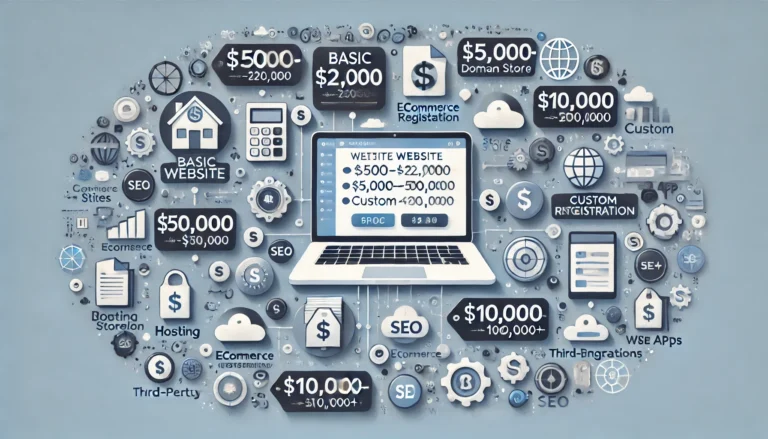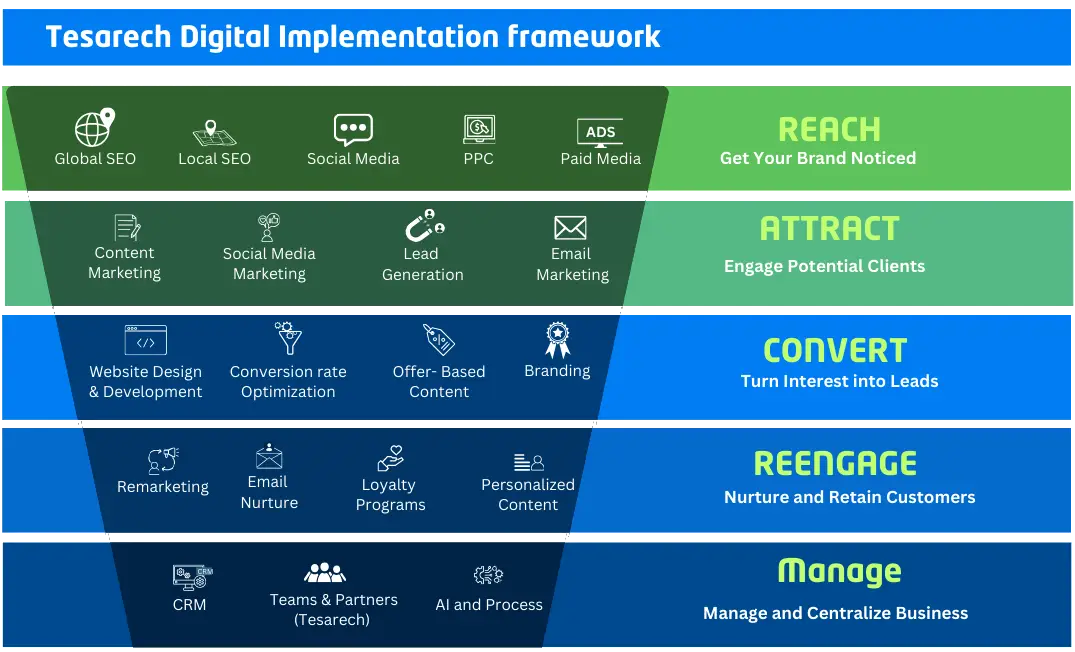If you’ve ever wondered how much a website costs in 2024 to build, you’re not alone. With websites becoming essential for businesses of all sizes, it’s crucial to budget properly and understand the factors that impact the final cost. Whether you’re planning a basic business site, an eCommerce platform, or a custom web application, this guide will break down the expenses and help you plan your investment wisely.
Why Do Website Costs Vary So Much?
The website costs in 2024 depend on multiple factors, such as design complexity, functionality, hosting, and ongoing maintenance. Let’s explore the major elements to give you a clearer picture.
Factors That Affect Website Costs in 2024
1. Type of Website
- Basic Website: Ideal for small businesses or personal use. Includes 5-10 pages (Home, About, Services, Portfolio, Contact).
Cost: $500 – $2,000 - Corporate Website: Features blogs, landing pages, and integrations like a CRM.
Cost: $3,000 – $10,000 - eCommerce Website: Requires product listings, shopping carts, and payment gateways.
Cost: $5,000 – $50,000 - Custom Web Application: Highly tailored, with advanced features like AI, dashboards, and APIs.
Cost: $10,000 – $100,000+
2. Design & Development
Website Design & Development are two key aspects of building a website. Design focuses on the site’s look, user experience (UX), and visual elements like layouts, colors, and branding, ensuring it’s attractive and easy to navigate. Development involves coding the functionality, including both front-end (what users interact with) and back-end (server, database, and logic) elements to make the site work smoothly. While design creates the visual framework, development brings it to life by ensuring everything functions properly. Both are essential for creating a website that is not only visually appealing but also fast, secure, and user-friendly.
- Pre-built Template Design: Faster and cheaper but offers limited customization.
Cost: $100 – $1,500 - Custom Design: Unique look and feel built from scratch to match your brand.
Cost: $2,000 – $15,000 - Front-end & Back-end Development: Complex functionalities (user portals, dashboards) add to the price.
Cost: $5,000 – $30,000
3. Content Management System (CMS)
A Content Management System (CMS) is a software platform that allows users to easily create, manage, and update website content without needing extensive coding knowledge. Popular CMS platforms like WordPress, Joomla, and Drupal offer pre-built templates, plugins, and tools for tasks such as blogging, eCommerce, and SEO optimization. CMS solutions streamline content management by providing a user-friendly interface where users can edit text, upload images, and manage pages. They also support multiple users with varying access levels, making them ideal for businesses and organizations. CMS platforms offer flexibility, but more advanced customization may require developer assistance.
- WordPress: Free, but themes, plugins, and customizations can increase costs.
Cost: $500 – $5,000 - Webflow: Free, but themes, plugins, and customizations can increase costs.
Cost: $1000- $10,000 - Custom CMS: A tailored solution offers more control and scalability.
Cost: $10,000+
4. Hosting & Domain
Hosting and Domain are essential components for making a website accessible on the internet. A domain is the web address (e.g., www.example.com) that users type to access your site, serving as its online identity. Hosting refers to the server space where your website’s files, databases, and content are stored and made available online. Without hosting, your site cannot be accessed, and without a domain, users won’t have a way to find it. Hosting services also provide essential features like security, backups, and performance optimization, ensuring your website runs smoothly. Together, hosting and domain create the foundation for any online presence.
- Domain Name: Standard domains (e.g., .com) typically cost $10 – $20 per year.
- Web Hosting: Prices vary depending on the plan.
- Shared Hosting: $50 – $150 per year
- VPS Hosting: $300 – $600 per year
- Dedicated Hosting: $1,000+ per year
5. Third-Party Integrations
Third-party integrations enhance a website’s functionality by connecting it with external tools and services, such as payment gateways, CRM systems, marketing tools, and analytics platforms. These integrations streamline processes like online payments (e.g., PayPal, Stripe), automate customer management with CRMs, and improve marketing efforts through tools like Google Analytics or email automation platforms. Instead of building every feature from scratch, developers can leverage these external services to save time, reduce costs, and provide a seamless user experience. Integrations also ensure scalability, making it easier to add new features as the business grows.
- Payment Gateways: Stripe, PayPal, or other solutions can add setup and transaction fees.
Cost: $50 – $500 (setup) + transaction fees - Marketing Tools & CRMs: Integrating tools like HubSpot CRM or Zoho CRM can increase both functionality and costs.
Cost: $500 – $3,000
6. Maintenance & Support
A website isn’t a one-time investment—it requires continuous updates, security patches, and backups.
- Annual Maintenance: $500 – $2,000
- Ongoing Support (Monthly): $100 – $500 per month
Cost Breakdown by Development Approach
| Development Type | Estimated Cost | Best For |
|---|---|---|
| DIY Website (Wix, Squarespace) | $300 – $1,000 | Freelancers, bloggers |
| Freelancer-Developed Site | $2,000 – $10,000 | Small businesses, startups |
| Agency-Developed Site | $10,000 – $50,000+ | Corporates, eCommerce stores |
| Custom Web Application | $20,000 – $100,000+ | Enterprises, SaaS platforms |
Additional Hidden Costs to Watch Out For
- SEO Services: Many companies invest in SEO to improve visibility.
Cost: $500 – $5,000 per month - Content Creation: Professional copywriting and blogs boost user engagement.
Cost: $50 – $500 per page - Security & SSL Certificates: Essential for protecting user data.
Cost: $50 – $300 per year
How to Optimize Your Website Budget
- Start Small and Scale: Begin with an MVP (minimum viable product) and add features over time.
- Use Templates Where Possible: A high-quality template can save time and reduce design costs.
- Outsource Specific Tasks: Hire freelancers for specific jobs like copywriting or SEO.
- Choose the Right Hosting Plan: Don’t overpay for hosting. Evaluate your needs first.
- Automate Maintenance: Use automation tools to minimize the need for manual updates.
Conclusion: How Much Should You Budget for Your Website in 2024?
In 2024, the cost of building a website can range from $500 for a simple site to $100,000+ for complex applications. The right approach depends on your business goals, target audience, and required features. Keep in mind that ongoing maintenance, integrations, and marketing tools will also add to the overall expense.
If you’re ready to build a website tailored to your needs, Tesarech Technologies offers expert solutions, from basic business websites to advanced eCommerce platforms. Contact us today for a free consultation and get an estimate that fits your budget!








